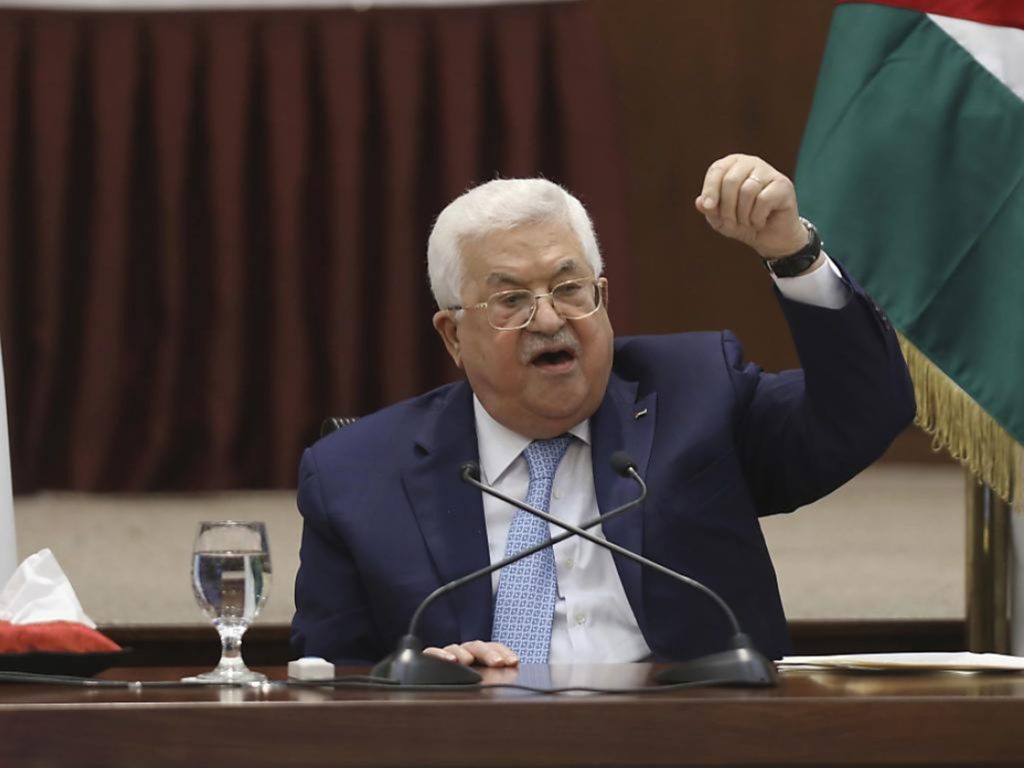IN THE MEDIA
The real enemies of a two-state Israel-Palestinian resolution
May 21, 2020 | Allon Lee

Peace hopes are hurt by the Palestinian Authority and a lack of scrutiny
An edited version of this article was first published in The Mercury, May 21 2020.
THERE have been multiple reports of the death of the two-state formula to the Palestinian-Israeli conflict. All represent not only wild exaggerations but a distortion of reality. Greg Barns’s latest swing at Israel, suggesting the new Netanyahu government’s plan to possibly extend Israeli sovereignty to areas of the West Bank ends peace hopes, is a good example (Talking Point, May 11).
First, the extent, the scope, and even whether any Israeli move will actually happen, remains unclear. Israel wants to extend its sovereignty to settlements and the strategically vital Jordan Valley to prevent a return to its pre-1967 borders when, at its narrowest, the country was only 15km wide. Decades of Palestinian terror, the rise of Iran, Hezbollah, and Syrian dictator Assad’s murder of 500,000 people have done little to change the dangers
But it comes mainly in the context of the Trump Administration’s “Peace to Prosperity” proposal, setting out a path for an independent Palestinian state. That state would include 70 per cent of the West Bank, as well as the Gaza Strip whose borders would be enlarged with land Israel will cede to it. The two Palestinian territories will be linked by a land corridor and have access to Israeli ports.
Israeli PM Benjamin Netanyahu accepted Trump’s plan. The Palestinian Authority (PA) rejected it before it was released. It is in this context Netanyahu wants to extend sovereignty to West Bank territory that Israel is slated to retain under the plan. But it is widely believed that without a strong Israeli commitment to the principles of the plan and Palestinian statehood, Trump’s endorsement will not be forthcoming.
Ignoring this context, as Barns does, papers over the gaping cracks in his argument.
That the PA threw away another opportunity to negotiate an end to the conflict was disappointing, but its leadership clearly felt confident in doing so. Perhaps this is partly because President Mahmoud Abbas rejected “out of hand”, as he put it, a more generous offer of a Palestinian state in 2008 by Israeli PM Ehud Olmert. This would have included the equivalent of 100 per cent of the West Bank, Gaza and shared sovereignty over Jerusalem’s holy sites.
But the PA has ruled over 40 per cent of the West Bank and more than 95 per cent of the Palestinians who live there since 1994. Hamas has controlled all of Gaza since it overthrew the PA in a ruthless coup two years after Israel unilaterally withdrew in 2005.
In other words, a Palestinian mini-state already virtually exists, enabling the PA to keep its options open. Instead of accepting Trump’s challenge, the PA has ramped up anti-Israel propaganda, particularly at the UN where Palestinian cries of catastrophe are guaranteed not only a sympathetic hearing but suspension of normal rules that characterise logic and international law.
To say Israel has no legal right to claim sovereignty in the West Bank because international law and the UN say so oversimplifies complex issues. The Jewish people’s right to settle in the West Bank was recognised by the UN and predecessor the League of Nations. With no legitimate sovereign power succeeding British rule in 1948, it can be argued this right remains legally valid. Moreover, given any territory Israel would incorporate is not part of the PA anyway, a change in its legal status is not the deal-breaker Barns claims.
Barns writes, “perhaps we might consider the plight of a people whose lives and destiny are immeasurably worse than ours will ever be in this land.”
On the West Bank, the Palestinian economy and way of life are not dire.
Despite PA corruption, income is higher than in many neighbouring Arab states. Blockaded Gaza has ridiculously high unemployment because Hamas makes ordinary Gazans pay the price for it diverting resources to its goal of eliminating Israel. Israel permits all humanitarian aid, medicines and most goods to enter Gaza through its shared border. Plus, Gaza shares a discrete border with Egypt.
The bitter rift between Hamas and the PA shows no signs of easing, further evidence of the blase attitude Palestinian leaders have towards their people’s “plight”.
If things are so dire, why have Palestinian leaders spent 20 years acting as if they have all the time in the world by rejecting repeated offers to create a Palestinian state and, since 2014, rejecting even the very concept of peace talks?
The past 20 years have shown, if Palestinians genuinely want a two-state outcome, it is available. Yet too many politicians, diplomats, academics and media professionals refuse to accept the PA’s top priority is not achieving a two-state solution, and thus are willing to swallow anti-Israel propaganda, effectively masking decades of intransigence that have not benefited Palestinian people.
Isn’t it time the international community asked why that might be and what needs to change?





